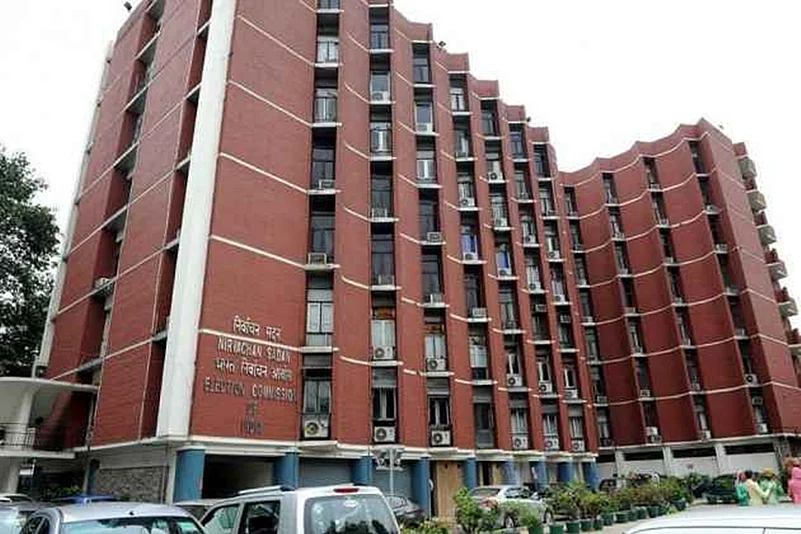Forty-eight hours after West Bengal will vote for the fourth phase on April 10, Chief Election Commissioner (CEC) Sunil Arora would be packing his bags and getting ready to hang his mud-laden shoes for good.
Set to retire on April 12, the IAS officer may not be leaving in a blaze of glory but he is likely to have earned a favourable Annual Confidential Report (ACR) from the government. The buzz is that Arora could be considered for a gubernatorial position after retirement. There is no legal bar on a post-retirement government sinecure for a former CEC; the same as in the case of a former Chief Justice of India (CJI) – the issue is only of ethics.
The job of the Election Commission of India (ECI) is certainly not easy. Conducting free and fair elections in a country that is perpetually and continually in poll mode, with political parties of all hues and pressures of varied degree, is not an enviable task by any standard. Though the ECI has largely succeeded in the job, high-stake elections invariably throw up situations where the ECI doesn’t just have to be fair, it also has to appear to be fair and neutral.
Some of the ECI’s decisions in the ongoing Assembly elections – particularly the relaxation of the 48-hour ban on BJP Assam leader Himanta Biswa Sarma -- have sparked an outrage among the Opposition parties, raising questions about the poll body’s independence.
Sarma had threatened to put Bodoland People’s Front chief Hagrama Mohilary behind bars through an NIA case if BJP returned to power in the state. Leading the BJP’s campaign in the north-eastern state, Sarma hit the road with a huge rally in Guwahati as soon as the ban was relaxed.
The Congress, whose complaint to the ECI had led to the ban, came down heavily on the poll body after it reversed its earlier decision following “unconditional regret” expressed by Sarma. The party said that ECI had “singularly failed” to discharge its obligations to preserve the purity of the electoral process. Congress leader Rahul Gandhi tweeted – “The EC's car has broken down. The BJP's intentions are bad and the condition of democracy has worsened.” The reference was also to an EVM purportedly found in the car of a BJP candidate in Assam.
Party general-secretary Randeep Singh Surjewala tweeted --- “A dark day for Parliamentary democracy. #ECI doesn’t even have the guts to sustain its own order. Deplorable that EC buckles under Modi Govt’s pressure & reverses its own order of ban on Sh. Himanta Biswa Sarma. History will neither pardon #ECI nor #BJP for this sin.”
West Bengal chief minister Mamata Banerjee too has accused ECI of acting in a “partisan manner under orders of home minister Amit Shah.” Now, the poll body is contemplating action against her terming her complaint regarding disruption of polling at a booth in Nandigram as “factually incorrect and devoid of substance.”
Another critic questioned the ECI about having different rules for DMK’s A. Raja and Sarma. Raja too faced a similar ban by the ECI but despite the Tamil Nadu leader rendering an apology, the ban was not relaxed. As has been seen from the history of the ECI, bans once imposed are seldom eased. One of the rare instances was during the 2014 Lok Sabha elections when the ECI lifted its ban on BJP leader Amit Shah’s electioneering in Uttar Pradesh after he assured the poll panel that he would not “make any utterances violative” of the conduct code.
Arora took over as the CEC in December 2018, just in time to conduct the 2019 Lok Sabha elections. The ECI got embroiled into a controversy in the run-up to the elections when it gave a clean chit to Prime Minister Narendra Modi and then BJP chief Amit Shah on several complaints related to Model Code of Conduct (MCC) violations. Though all cases are supposed to be decided unanimously, then one of the Election Commissioners Ashok Lavasa had dissented and insisted that his dissent be recorded. When that was not done, Lavasa had recused himself from cases pertaining to MCC violations. Later, Arora had described his dissent as “avoidable”.
Lavasa would have succeeded Arora had he continued in the ECI. However, he was eased out and sent as the Vice-president of the Asian Development Bank (ADB), based in Manila. Now, next in line is Election Commissioner Sushil Chandra, an IRS officer who was earlier the Chairman of Central Board of Direct Taxes (CBDT).
This is not the first time that the apex poll body of the country has been accused of partisanship at the behest of the ruling party. In the run-up to the 2009 Lok Sabha elections, then CEC N. Gopalaswami had recommended to the then UPA-led government the removal of EC Navin Chawla, citing instances of “partisan behaviour.”
Gopalaswami is believed to have acted on a petition filed by BJP leader L.K. Advani and 179 other MPs, who had levelled accusations of “political partisanship” against Chawla. The then CEC had contended that he had powers under the Constitution to recommend the removal of Chawla. The government, however, rejected the recommendation and later appointed Chawla as the CEC in April 2009 in the middle of Lok Sabha elections.
In addition to implementing the MCC impartially, the ECI’s task is clear-cut – to reduce the role of money power in elections, to clamp down heavily on hate and communal speeches, to remove the veil of secrecy from electoral bonds and provide a level-playing field to all parties and candidates. The government must take a policy decision ending post-retirement sinecures for heads of institutions that will survive only for their impartiality.
















